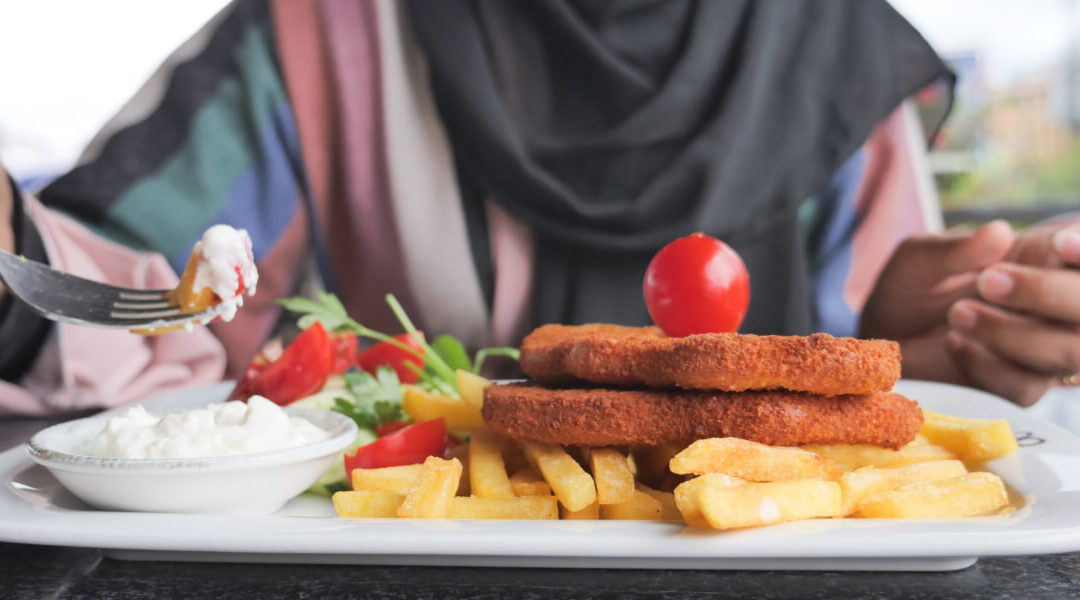Halal certification in the U.S. is no longer optional for brands that want to compete. It is the difference between staying local and tapping into a $226-billion North American market set to nearly double by 2033.
Without it, you miss the trust of over 3.5 million Muslim consumers, the loyalty of health-conscious non-Muslims, and access to lucrative export markets in the Middle East, Asia, and Europe.
This guide breaks down exactly how certification works in the U.S, process, timelines, and common pitfalls.
You Might Like: Opportunity Cost of Not Being Halal-Certified: Why is Halal Certification Important?
Why This Matters More in the U.S. Than You Think
Halal certification is more than a dietary label. It is a growth tool that builds trust, expands your market, and opens global trade doors.
The American halal food market is projected to grow from $2.7 trillion to $5.9 trillion by 2033.
In the U.S. food industry, halal certification has moved beyond being a “nice-to-have” label. It is now a compliance benchmark.
Why it matters now:
- Muslim population in the U.S. is expected to double.
- USDA now requires proof from an approved certifier for any halal label
- Certified products enjoy stronger export potential and consumer trust
Skipping certification means losing both domestic sales and international opportunities.
The Halal Certification Roadmap
Modeled after the American Halal Foundation (AHF) and other accredited certifiers, here’s the halal certification process for U.S food manufacturers:.
| Step | What Happens | Expert Tip |
| 1. Application & Documentation | Submit product lists, ingredient specs, process flow, and your Halal Product Assurance System (HPAS). | Build a master ingredient database now — it saves weeks later. |
| 2. Technical Review | Certifier vets every ingredient, supplier, and process. | Have backup suppliers pre-approved to avoid production delays. |
| 3. Facility Audit | Inspectors review facilities, storage, equipment, and staff training. | Schedule during production to demonstrate real-time compliance. |
| 4. Approval & Certification | Certification issued, allowing halal labeling. | Launch a PR push — halal certification is a brand story. |
| 5. Renewals | Annual renewals and periodic inspections. | Make halal SOPs part of your core QA manual. |
The Halal Certification Process in the USA
Here is the reliable road map broken into clear steps to guide your journey:
Step-by-Step Process
| Step | Description | Duration |
| 1 | Submit application and Halal Application | 3–7 business days |
| 2 | Technical review of ingredients and suppliers | 1–2 weeks |
| 3 | Schedule and conduct a facility audit | 1–2 weeks |
| 4 | Certification decision and issuance | 48 hours post-audit |
| 5 | Use the halal logo and marketing rights granted | Immediately after approval |
AHF reports that applicants complete the process in 6–8 weeks on average, and as fast as 2 weeks if documentation is airtight.
Check out: What is a Halal Audit? All You Need to Know
5 Common Pitfalls That Delay Halal Certification
Real challenges that trip up food makers and how to avoid them.
- Hidden Ingredient Problems
Emulsifiers, flavorings, and additives may contain animal byproducts. Always verify every component with a halal declaration.
- Cross-Contamination Risks
Using shared equipment for both halal and non-halal products without protocol fails audits. Either separate or rigorously clean.
- Documentation Gaps
Expired or missing certificates, incomplete HPAS, or missing supplier info lead to rejection.
- Staff Unawareness
Untrained staff may mishandle packaging or ingredients; train production, quality assurance, and procurement teams thoroughly.
- Improper Labelling
Never label products “Halal certified” or use the logo before certification is issued—this risks regulatory action.
Don’t Miss Our Guide to Understanding Cross Contamination in Halal Certification
Get in Touch With AHF
Every day you delay halal certification, you lose customers, contracts, and global market access. We help you get certified fast, stay compliant, and unlock doors to premium U.S. and export markets.
Call +1 (630) 759-4981 or email info@halalfoundation.org now to learn more regarding halal certification for food manufacturers in the USA.
Frequently Asked Questions (FAQs)
1. Are additives like colorings and preservatives checked?
A: Yes, auditors review all additives, including processing aids and colorants. Even indirect ingredients must have halal proof to pass certification.
2.Is GMP certification necessary for halal?
A: No, GMP is not required. But GMP status may strengthen your brand story. Halal compliance stands on its own through proper sourcing and processing controls.
3. Can cold storage warehouses get certified separately?
A: Yes, Cold storage sites can be certified as halal logistics facilities. They must segregate halal inventory, control temperature, document sanitation, and ensure traceability. For exports, align with SMIIC 17-2 or MS 2400.
Azmi Anees is a certification and compliance specialist working with the American Halal Foundation, where he focuses on global halal certification programs, integrated audits, and market-access strategy for food, cosmetic, nutraceutical, and ingredient manufacturers. He has worked closely with multinational brands and SMEs across North America, the Middle East, and Southeast Asia. His insights emphasize on practical guidance for manufacturers looking to achieve halal compliance while improving operational efficiency and global market reach.




